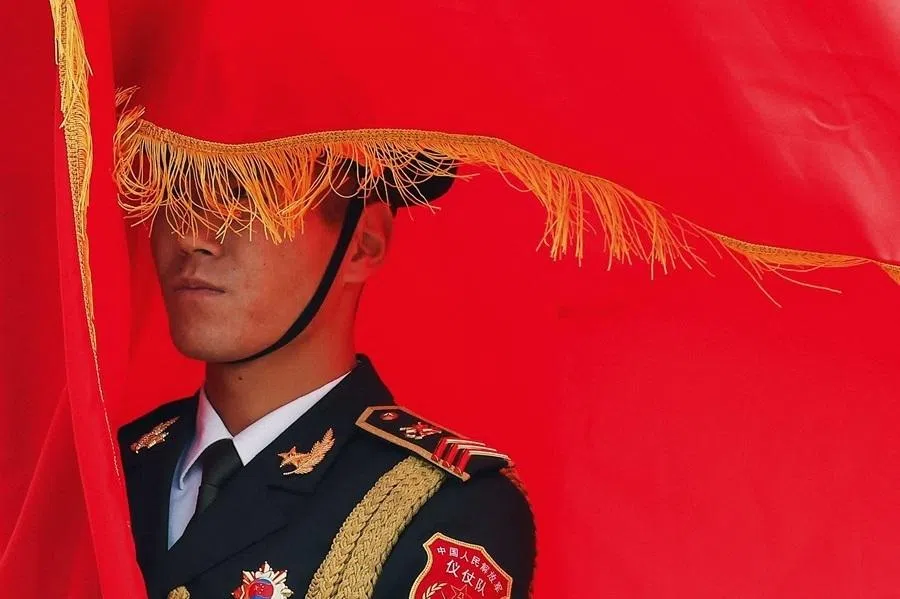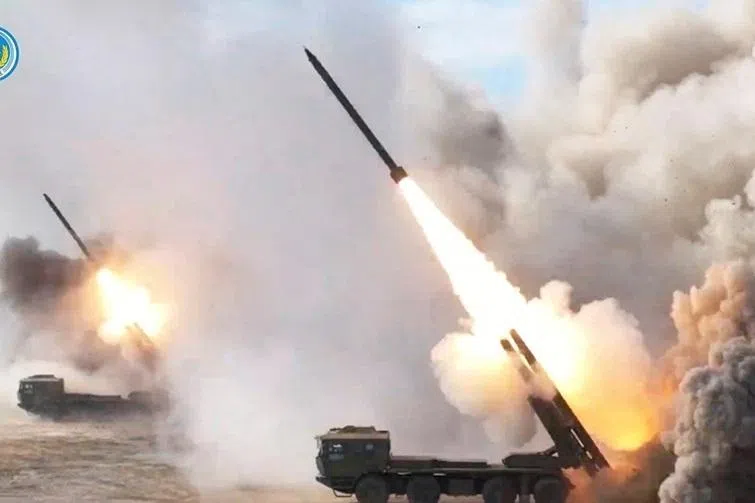Is China the 'big bad wolf' the US has made it out to be?
In the face of domestic problems, the US is choosing to suppress China as a strategy to distract from issues such as the coronavirus, George Floyd riots, and a declining economy. Zaobao correspondent Yang Danxu traces the tit-for-tat exchanges between the US and China, with the latest round of salvos being over resuming passenger flights between both countries.
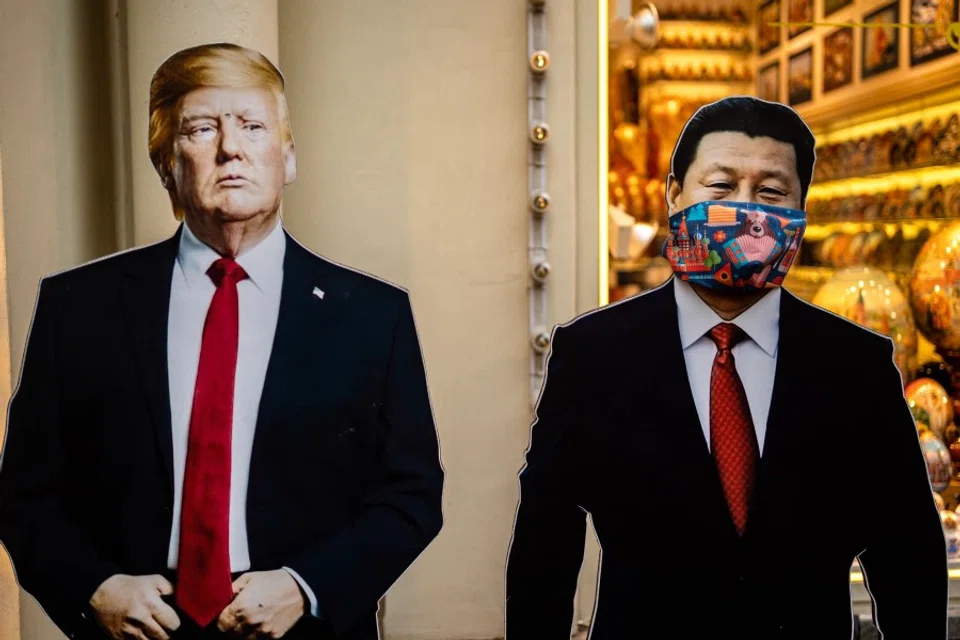
After threatening to impose sanctions on Hong Kong and halting flights from China, the US is now exerting pressure on China in the areas of media, trade, and human rights. Academics interviewed by Zaobao said the US's policy towards China in this election year has been driven by politics. As the US faces domestic pressures including the coronavirus, George Floyd riots, and a slide in its economy, the Trump administration is treating the suppression of China as a political lifeline.
Reuters yesterday cited sources as saying that the US is expected to designate four additional state-run Chinese media outlets - including CCTV and China News Service - as foreign embassies, and increase restrictions on their operations in the US.
This will most probably spark a fresh media war between China and the US. The US had earlier designated five Chinese media outlets as foreign embassies, including Xinhua, CGTN, and China Radio International. In March, the US implemented restrictions on the number of US-based Chinese staff at Chinese news outlets; in retaliation, China expelled China-based US reporters of The New York Times, The Wall Street Journal, and Washington Post.
The US is also ramping up trade pressure on China. On 3 June, the US Department of Commerce said that sanctions on 33 Chinese firms and institutions announced last month will take effect from today. These entities will not be able to use US technology without approval from the US government.
US authorities claimed that these entities were listed for helping China spy on its minority Muslim Uighur population in Xinjiang or because of alleged ties to weapons of mass destruction and China's military.
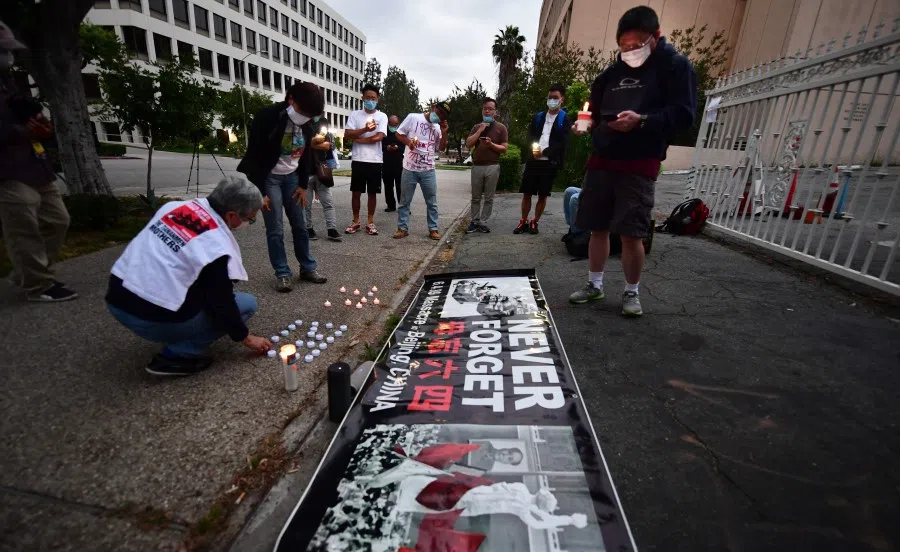
With 4 June being the 31st anniversary of the Tiananmen Square incident, US Secretary of State Mike Pompeo tweeted on 2 June photos of himself with some of those involved in that civil movement, while the Department of State released a statement commemorating the incident, touching a nerve in Beijing.
"Trump hopes that increased suppression of China will create an image that only he can strongly and effectively handle China." - Professor Zhu Feng, Nanjing University
China-US ties have deteriorated due to the coronavirus. This has been made worse recently by Beijing's decision to enact a national security law for Hong Kong, in a move that adds to the growing list of disagreements between both sides. On 29 May, the US announced that it had started the process to remove Hong Kong's preferential status; two days ago, it threatened to halt passenger flights by Chinese airlines to the US, sending dangerous signals of a halt in flights between both countries.
Playing up China-US conflict to distract from domestic issues
Professor Zhu Feng, dean of the School of International Relations at Nanjing University, told Zaobao that with the US facing urgent and challenging problems for President Donald Trump such as the coronavirus, riots, and the economy in an election year, the main reason for playing up the China-US conflict and emphasising the China threat is to distract from domestic issues.
"Trump hopes that increased suppression of China will create an image that only he can strongly and effectively handle China," he said.
"the US approach to China is at most 5% policy, 95% politics" - Professor Adam Garfinkle, S. Rajaratnam School of International Studies
Prof Zhu assessed that the recent US moves against China are "completely irrational", and China "does not have to dance to Trump's tune". He said, "(Trump) is suppressing China as a political lifeline. The most important thing for China now is to remain steady and not gamble China-US relations on Trump alone."
Setting up China as the "big bad wolf"
Professor Adam Garfinkle, distinguished visiting fellow at the S. Rajaratnam School of International Studies, agreed that "the US approach to China is at most 5% policy, 95% politics".
He said, "All of this is political calculations and signals. National security and diplomatic policy are just tools to be used."
Dr Garfinkle is the founding editor of The American Interest, and is on the Board of Advisors at the Foreign Policy Research Institute. He was also a speechwriter for both of President George W. Bush's Secretaries of State, Colin Powell and Condoleezza Rice.
What is worrying is the US is setting up China as the "big bad wolf", while too many people in China are influenced by "Wolf Warrior" type movies. - Professor Adam Garfinkle
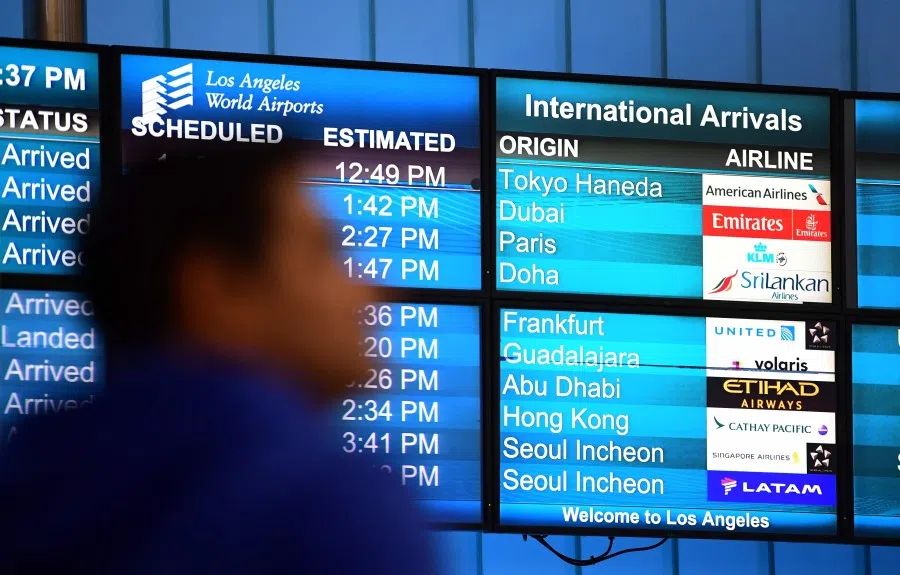
With a figurative storm brewing in the intense China-US conflict, Dr Garfinkle feels economic decoupling is not the scariest scenario - what is worrying is the US is setting up China as the "big bad wolf", while too many people in China are influenced by "Wolf Warrior" type movies.
He said, "That is the danger that could easily spark something major. Even worse, there is absolutely no behind-the-scenes interaction between both sides apart from the negative public exchanges. To put it simply, there is no China-US diplomacy to speak of right now."
China loosens flight bans on foreign airlines
Following the US announcement of a halt on passenger flights to the US by Chinese airlines, the Civil Aviation Administration of China (CAAC) has loosened flight bans on foreign airlines. This will ease disputes over Chinese and US flight paths, and help prevent the risk of a halt in flights between China and the US.
CAAC yesterday issued a statement saying that starting from 8 June 2020, all foreign airlines that do not have their flight plans included in the Information on International Flight Plans (Phase Five) issued by CAAC on its official website on 12 March can choose one city with airport(s) capable of accommodating international passenger flights, and operate one weekly international passenger flight. These cities include nearly 40 destinations, such as Beijing, Shanghai, Guangzhou, and Shenzhen.
However, there is no change to the rule that one airline from each foreign country can only run one air route to China and operate no more than one flight a week.
On 3 June, the US threatened to halt passenger flights by Chinese airlines from 16 June, to pressure Beijing to allow US airlines to resume flights to China.
Responding at a regular press conference yesterday, Chinese Foreign Ministry spokesperson Zhao Lijian said the CAAC and the US Department of Transportation have been in close communication regarding flights between the two countries, and there has been some progress. He added that now China has announced the policy adjustment, hopefully, the US will not create obstacles for resolving the issue.
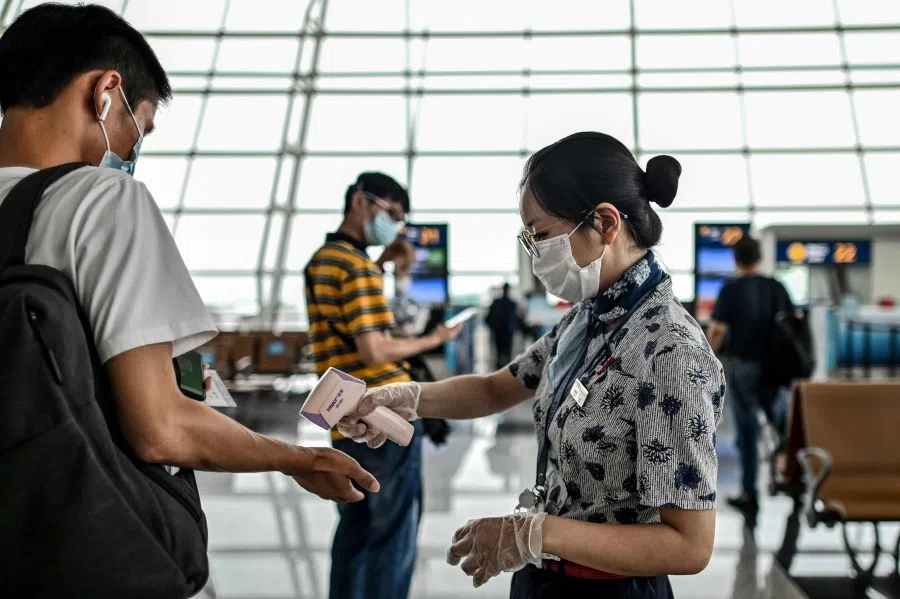
According to the CAAC notice, China will also roll out incentives and circuit breaker measures for flights: "If no arriving passenger flying on the same flight and same route operated by an airline is found positive in his/her nucleic acid test after arrival for three consecutive weeks, the airline could add one weekly flight... and shall cap their weekly flights at two... If five to nine arriving passengers flying the same flight and same route operated by an airline are found positive in their nucleic acid tests after arrival, the airline's operation on that specific route shall be suspended for one week; if ten or over ten passengers test positive after arrival, the airline's operation on the route shall be suspended for four weeks."
Aviation industry commentator Zhang Zhonglin said on Guancha.cn that CAAC is putting the ball back in the US's court: "The conditions of resuming flights are very clear, read them for yourself."
He also felt that the circuit breaker measures will help to make airlines more attentive to pre-flight coronavirus checks, but can also indirectly add to the flight volume of some airlines that are doing a good job against the coronavirus.
Prof Zhu of Nanjing University gave a positive assessment of CAAC's adjustments. He said cutting off flights would affect normal interaction between China and US personnel, and both sides should maintain dialogue and try to resolve technical issues, in order to carry on personnel and commercial exchanges.
Related: China wants 'co-opetition' with the US, but can that happen? | China to punish Western 'anti-China' forces and 'make them feel the pain', according to Chinese official media report | Friends to foes: Matthew Pottinger's Mandarin speech to China and US-China relations | Chinese nationalist internet warriors creating diplomatic disputes for China | Trading places: A confident China and an insecure America?



![[Big read] When the Arctic opens, what happens to Singapore?](https://cassette.sphdigital.com.sg/image/thinkchina/da65edebca34645c711c55e83e9877109b3c53847ebb1305573974651df1d13a)
